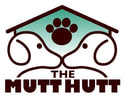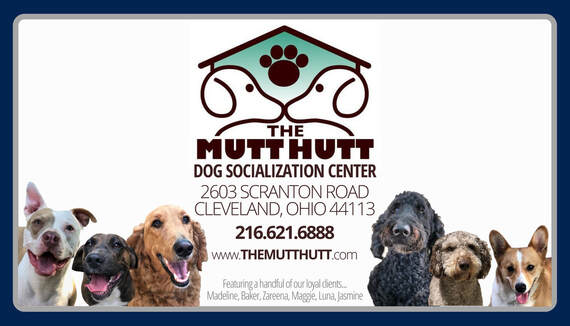What is Canine Cough?
Canine Cough, or “kennel cough” is a contagious, upper-respiratory disease that is spread by any one of three infectious agents (parainfluenza, adenovirus, or Bordetella) or any combination thereof—most often passed on through the air, it can also be transmitted on hands or clothing. The incubation period of the disease is roughly three to ten days and an infected pet may be contagious for three weeks after showing the first signs of illness.
What are the symptoms of Canine Cough?
The usual symptoms include a dry, "non-productive" cough. The dog sounds as if there is something stuck or caught in the throat and the coughing is an unsuccessful attempt to dislodge the object. Sometimes the coughing/gagging seems very violent. The episodes of coughing may go on for minutes at a time and then be repeated at intervals. In addition to a cough, it is sometimes accompanied by sneezing and nasal discharge, which can last from a few days to several weeks. Although this coughing is very annoying, it does not usually develop into anything more serious; however, just as with a common cold, it can lower the dog’s resistance to other diseases making it susceptible to secondary infections, and so the dog must be observed closely to avoid complications. Canine cough can be more common and problematic for puppies and geriatric dogs whose immune systems may be weaker.
How long does canine cough last?
Kennel cough generally will be gone in two weeks time or less, with or without antibiotics (but probably faster with).
Why is the vaccine that prevents Canine Cough not keeping my dog safe from the virus?
Your dog can still catch canine cough even if s/he has had the vaccine to prevent it. Although there is a vaccine (Bordetella) for canine cough, it is often not 100% effective in preventing infection. The most likely explanation for this is that there are many strains and mutations of the virus out there. Typically the vaccine prevents against 50% of the strains therefore it is hit or miss whether the vaccine used on your dog will be the right one for the strain with which your dog comes into contact. This is similar to what we experience with the flu or COVID-19 vaccine; each year a vaccine is developed based on which strain(s) are suspected to be most prevalent.
What do I do if my dog develops Canine Cough?
If your dog develops symptoms of kennel cough: don’t panic! The way this illness operates is analogous to the common cold that we humans sometimes catch; simply put: it must run its course. However, any animal displaying signs of the illness should report this to your veterinarian as soon as possible. Many times antibiotics will be prescribed to prevent secondary infection, and sometimes cough suppressants will be prescribed to reduce excessive coughing, but these medications do not attack the disease itself. Home remedy treatments for canine cough without the consultation of a veterinarian are not recommended. Some veterinarians prefer to avoid an in-person consultation in circumstances of your dog picking up the virus in a social setting such as ours when there may be multiple reports so your dog does not bring the virus into the clinic which may infect other pets.
Should I be concerned about other dogs in my home?
If you have more than one dog in your household, and one of them develops canine cough, you can try to keep that one isolated, to minimize exposure to your other dog(s). However, by the time your dog is symptomatic, the virus has probably already been "shared" with your other pets or any other dogs with which yours has had contact recently. You may wish to treat all of your dogs, as a preventive measure for those that are asymptomatic, to ensure their immune systems are strong enough to ward off infection from the virus.
Does Canine Cough occur only in pet care facilities like The Mutt Hutt?
No. Since these viruses can be present anywhere, and can travel for considerable distances through the air, they can affect any dog, even one that never leaves its own backyard. But canine cough is more likely to occur when the concentration of dogs is greater such as at veterinarian offices, boarding kennels, dog daycares, grooming salons, as well as retail stores. Dogs can be exposed while running loose or while being walked near other dogs, or playing in the park. Cross contamination can also occur when dog owners are taking their dog to other social facilities so it’s important we know if you are socializing at other establishments when not at The Mutt Hutt.
Are the chances of my dog catching canine cough greater when it’s socializing with other dogs at a pet care facility and dog parks?
Yes. Because, in any pet care facility or dog park, a dog encounters two conditions that do not usually exist at home; proximity to a number of potentially contagious dogs, and the stress and excitement of a less familiar environment, which can result in lower resistance to disease (these same factors explain why children are more likely to catch the flu at school, rather than at home). But the more frequently a dog visits a pet care facility or dog park, the greater are the chances that it will acquire immunity to the disease.
What is The Mutt Hutt’s policy on canine cough?
In our experience we have found reports of canine cough are more prevalent during the change of seasons: winter into spring (March/April) and then fall into winter (October/November). When we notice a dog coughing or feeling ill we will report this to the owner and quarantine the dog from the others. We enforce a strict policy mandating that all dogs are up to date on required vaccines including: Distemper (DHLP), Bordetella, Rabies and Canine Influenza (H3N2/H3N8). We require immunization against canine cough, will refuse to admit an obviously sick dog, follow responsible cleaning and sanitation practices, listen and watch for any signs of sickness followed by making sure that any dog presenting symptoms is immediately quarantined away from the other dogs.
From speaking with our local Veterinarian it’s our understanding and experience when canine cough symptoms are exposed in an open facility setting such as ours in most cases only a fairly small percentage of exposed dogs are affected. While the spread of canine cough can be minimized by proper cleaning, isolating obviously sick animals, and properly ventilating the facility, remember that no amount of supervision, sanitation, or personalized care is guaranteed to be 100% effective against the illness.
Dog owners are then asked to pick up their dog as quickly as possible and report back after being seen by a veterinarian. Dogs with canine cough are generally suspended from socializing or staying at The Mutt Hutt for a period of 10-15 days and may require the dog's health record from the vet clinic they were treated at be presented upon return to the facility.
Canine Cough, or “kennel cough” is a contagious, upper-respiratory disease that is spread by any one of three infectious agents (parainfluenza, adenovirus, or Bordetella) or any combination thereof—most often passed on through the air, it can also be transmitted on hands or clothing. The incubation period of the disease is roughly three to ten days and an infected pet may be contagious for three weeks after showing the first signs of illness.
What are the symptoms of Canine Cough?
The usual symptoms include a dry, "non-productive" cough. The dog sounds as if there is something stuck or caught in the throat and the coughing is an unsuccessful attempt to dislodge the object. Sometimes the coughing/gagging seems very violent. The episodes of coughing may go on for minutes at a time and then be repeated at intervals. In addition to a cough, it is sometimes accompanied by sneezing and nasal discharge, which can last from a few days to several weeks. Although this coughing is very annoying, it does not usually develop into anything more serious; however, just as with a common cold, it can lower the dog’s resistance to other diseases making it susceptible to secondary infections, and so the dog must be observed closely to avoid complications. Canine cough can be more common and problematic for puppies and geriatric dogs whose immune systems may be weaker.
How long does canine cough last?
Kennel cough generally will be gone in two weeks time or less, with or without antibiotics (but probably faster with).
Why is the vaccine that prevents Canine Cough not keeping my dog safe from the virus?
Your dog can still catch canine cough even if s/he has had the vaccine to prevent it. Although there is a vaccine (Bordetella) for canine cough, it is often not 100% effective in preventing infection. The most likely explanation for this is that there are many strains and mutations of the virus out there. Typically the vaccine prevents against 50% of the strains therefore it is hit or miss whether the vaccine used on your dog will be the right one for the strain with which your dog comes into contact. This is similar to what we experience with the flu or COVID-19 vaccine; each year a vaccine is developed based on which strain(s) are suspected to be most prevalent.
What do I do if my dog develops Canine Cough?
If your dog develops symptoms of kennel cough: don’t panic! The way this illness operates is analogous to the common cold that we humans sometimes catch; simply put: it must run its course. However, any animal displaying signs of the illness should report this to your veterinarian as soon as possible. Many times antibiotics will be prescribed to prevent secondary infection, and sometimes cough suppressants will be prescribed to reduce excessive coughing, but these medications do not attack the disease itself. Home remedy treatments for canine cough without the consultation of a veterinarian are not recommended. Some veterinarians prefer to avoid an in-person consultation in circumstances of your dog picking up the virus in a social setting such as ours when there may be multiple reports so your dog does not bring the virus into the clinic which may infect other pets.
Should I be concerned about other dogs in my home?
If you have more than one dog in your household, and one of them develops canine cough, you can try to keep that one isolated, to minimize exposure to your other dog(s). However, by the time your dog is symptomatic, the virus has probably already been "shared" with your other pets or any other dogs with which yours has had contact recently. You may wish to treat all of your dogs, as a preventive measure for those that are asymptomatic, to ensure their immune systems are strong enough to ward off infection from the virus.
Does Canine Cough occur only in pet care facilities like The Mutt Hutt?
No. Since these viruses can be present anywhere, and can travel for considerable distances through the air, they can affect any dog, even one that never leaves its own backyard. But canine cough is more likely to occur when the concentration of dogs is greater such as at veterinarian offices, boarding kennels, dog daycares, grooming salons, as well as retail stores. Dogs can be exposed while running loose or while being walked near other dogs, or playing in the park. Cross contamination can also occur when dog owners are taking their dog to other social facilities so it’s important we know if you are socializing at other establishments when not at The Mutt Hutt.
Are the chances of my dog catching canine cough greater when it’s socializing with other dogs at a pet care facility and dog parks?
Yes. Because, in any pet care facility or dog park, a dog encounters two conditions that do not usually exist at home; proximity to a number of potentially contagious dogs, and the stress and excitement of a less familiar environment, which can result in lower resistance to disease (these same factors explain why children are more likely to catch the flu at school, rather than at home). But the more frequently a dog visits a pet care facility or dog park, the greater are the chances that it will acquire immunity to the disease.
What is The Mutt Hutt’s policy on canine cough?
In our experience we have found reports of canine cough are more prevalent during the change of seasons: winter into spring (March/April) and then fall into winter (October/November). When we notice a dog coughing or feeling ill we will report this to the owner and quarantine the dog from the others. We enforce a strict policy mandating that all dogs are up to date on required vaccines including: Distemper (DHLP), Bordetella, Rabies and Canine Influenza (H3N2/H3N8). We require immunization against canine cough, will refuse to admit an obviously sick dog, follow responsible cleaning and sanitation practices, listen and watch for any signs of sickness followed by making sure that any dog presenting symptoms is immediately quarantined away from the other dogs.
From speaking with our local Veterinarian it’s our understanding and experience when canine cough symptoms are exposed in an open facility setting such as ours in most cases only a fairly small percentage of exposed dogs are affected. While the spread of canine cough can be minimized by proper cleaning, isolating obviously sick animals, and properly ventilating the facility, remember that no amount of supervision, sanitation, or personalized care is guaranteed to be 100% effective against the illness.
Dog owners are then asked to pick up their dog as quickly as possible and report back after being seen by a veterinarian. Dogs with canine cough are generally suspended from socializing or staying at The Mutt Hutt for a period of 10-15 days and may require the dog's health record from the vet clinic they were treated at be presented upon return to the facility.


